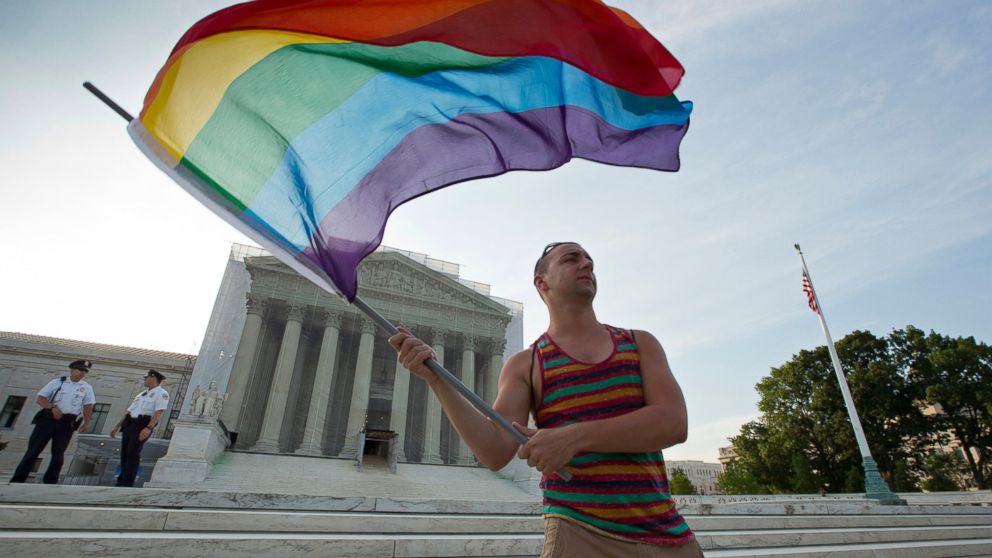Why the Supreme Court Is Suddenly More Likely to Take Up Gay Marriage
And why a federal appeals court has upheld state bans on gay marriage.

— -- For the first time since the Supreme Court’s historic gay marriage rulings in 2013, a federal appeals court has upheld state bans on gay marriage.
The 2-1 ruling by the 6th Circuit Court of Appeals creates a circuit split in the lower courts and means the Supreme Court is much more likely to take up the issue.
Today’s ruling concerned marriage recognition bans in Kentucky, Michigan, Ohio and Tennessee. Judge Jeffrey S. Sutton of the 6th Circuit wrote the decision. Sutton, an appointee of President George W. Bush, was joined by Judge Debra L. Cook, also a George W. Bush appointee. Judge Martha Craig Daughtrey, a Clinton appointee, dissented.
“In just eleven years, nineteen States and a conspicuous District, accounting for nearly forty-five percent of the population, have exercised their sovereign powers to expand a definition of marriage that until recently was universally followed going back to the earliest days of human history,” Sutton wrote. He said such a decision should be made by the people, not the Courts.
But Judge Daughtrey slammed the majority opinion, which she said would make an “engrossing TED talk” but that “wholly fails to grapple with the relevant constitutional question in this appeal: whether a state’s constitutional prohibition of same-sex marriage violates equal protection under the Fourteenth Amendment.”
In October, the Supreme Court refused to take up several other cases dealing with the issue of whether states can ban gay marriage. Soon after, Justice Ruth Bader Ginsburg told NPR’s Nina Totenberg, “when there’s no disagreement among the courts of appeals we don’t step in. ... If there had been a court of appeals on the other side, we probably would have taken that case."
Now there is such a split, and it’s likely the Supreme Court will step in.
Chase Strangio, staff attorney in the ACLU Lesbian Gay Bisexual and Transgender Project, said in a statement: "This decision is an outlier that’s incompatible with the 50 other rulings that uphold fairness for all families, as well as with the Supreme Court’s decision to let marriage equality rulings stand in Indiana, Wisconsin, Utah, Oklahoma and Virginia. We will be filing for Supreme Court review right away and hope that through this deeply disappointing ruling we will be able to bring a uniform rule of equality to the entire country.”




